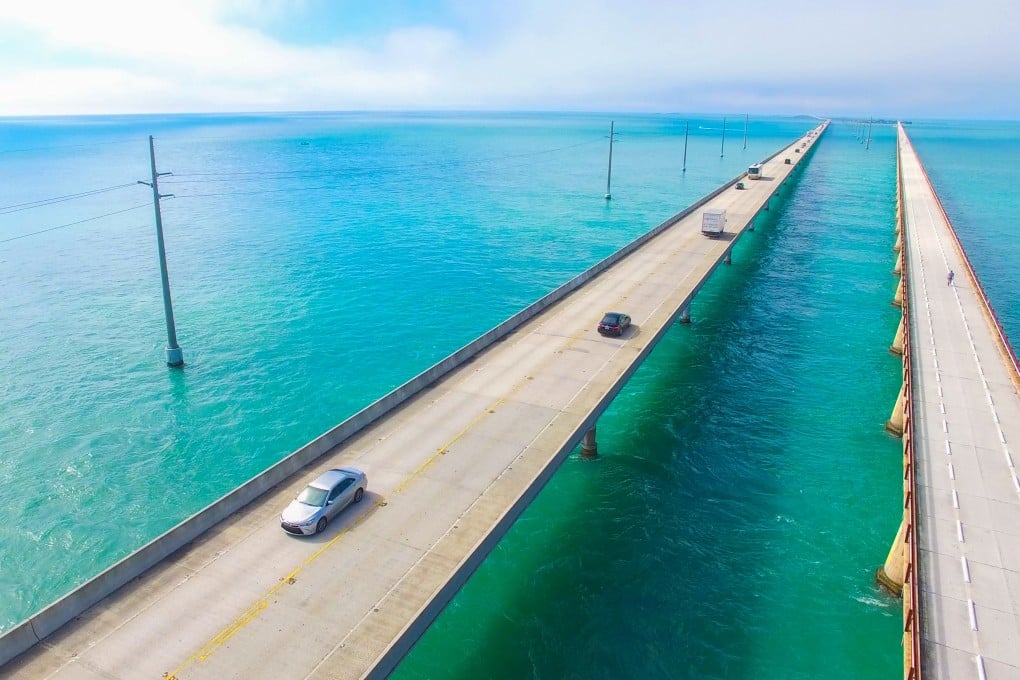The Florida Keys: the good, bad and ugly sides to the subtropical island chain
- The 1,700 coral atolls have lured the likes of Ernest Hemingway and Tennessee Williams with their subtropical charms
- Rising to a peak of only 5.5 metres, the islands are at the mercy of climate breakdown, with Fodor’s Travel ranking it a ‘no-go’ area

The good
The Fourth of July is a significant and much anticipated date in the United States but it isn’t the only independence day Americans celebrate. April 17 (the date chosen this year) will usher in 10 days of parades and parties to commemorate the 38th anniversary of Key West’s brief spell as a self-governing microstate.
The so-called Conch Republic symbolically broke away from the US in 1982, after a spat involving a hastily installed immigration checkpoint. Despite the roadblock not being at an international frontier, lengthy ID inspections and vehicle searches caused endless traffic jams along the only road linking the Florida Keys with the mainland, much to the annoyance of locals. The feud was finally resolved when the US Border Patrol bowed to pressure and removed the facility in what was seen as a victory for grass-roots activism.
The tongue-in-cheek tiff says much about the stubbornness and eccentricity of Florida Keys residents – merchandise bearing the faux nation’s motto, “We Seceded Where Others Failed”, sells well during festivities.

The keys (from the Spanish word cayo, meaning “small low island”) are a chain of some 1,700 coral atolls linked by US Highway 1. A total of 42 bridges connect the archipelago, the longest of which measures seven miles (11.3km) and is called – wait for it – Seven Mile Bridge. I told you they were eccentric around here.
When the road eventually comes to an end you’ll find yourself in Key West, the southernmost city in the continental United States. Closer to Cuba than Miami, the diminutive settlement draws weekenders from elsewhere in Florida and, at this time of year, holidaymakers from the frigid northern states. (Key West has never recorded a temperature below freezing.)
